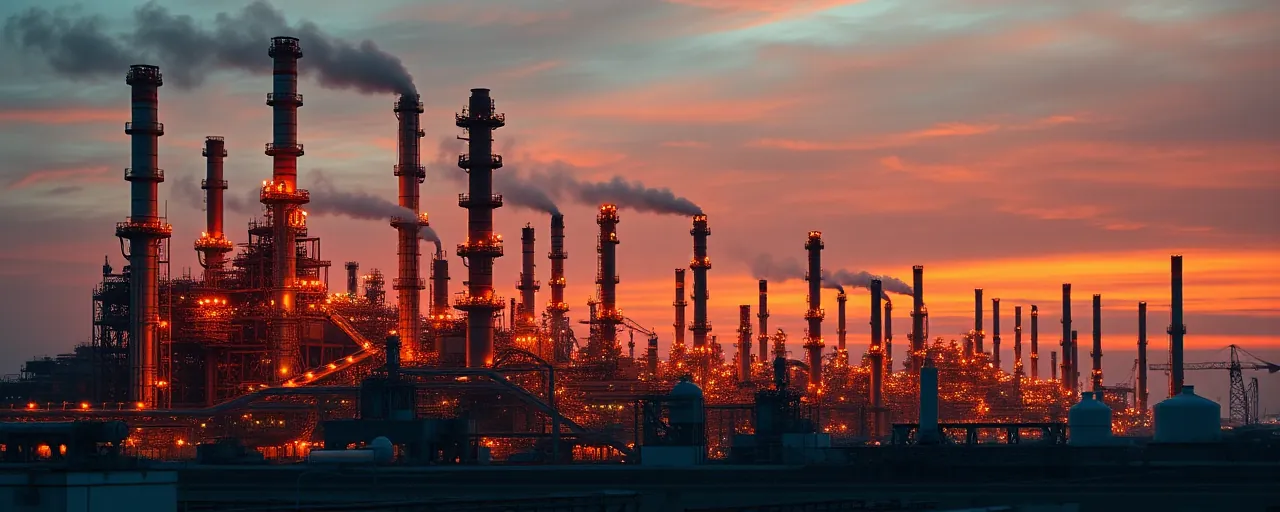A New Round of Sanctions
The United States has imposed sanctions on Shandong Shengxing Chemical Co., Ltd., a Chinese oil refinery, for purchasing over a billion dollars' worth of Iranian crude. Announced on April 16, 2025, the measures also target several companies and vessels linked to Iran's oil shipments to China. This marks the latest effort by the U.S. to choke off Iran's oil revenue, a critical source of funding for its government.
The sanctions reflect a broader strategy to disrupt Iran's ability to evade international restrictions. By targeting a so-called 'teapot' refinery, small and independent facilities that process crude, the U.S. aims to close loopholes in global oil markets. Yet, the move raises questions about its impact on U.S.-China relations and the feasibility of enforcing such measures in a complex, interconnected economy.
Iran's Oil Lifeline
Iran relies heavily on oil exports to sustain its economy, with China as its largest buyer. In 2024, China accounted for over 90% of Iran's oil exports, importing a record 1.71 million barrels per day in March 2025. These shipments, often disguised as originating from countries like Malaysia, flow primarily to China's teapot refineries, which buy the crude at steep discounts.
To evade detection, Iran employs a 'shadow fleet' of tankers that operate without transponders, making it hard to track their movements. Ship-to-ship transfers in international waters further obscure the oil's origins. Payments, often in Chinese yuan through smaller banks, bypass U.S. financial systems, shielding buyers from immediate repercussions.
The resilience of this trade highlights Iran's adaptability. Despite U.S. efforts, Iran's oil exports hit 1.82 million barrels per day in February 2025, the highest since 2018. This suggests that while sanctions create hurdles, they have not fully stemmed the flow of Iranian oil.
The Weight of Maximum Pressure
The U.S. strategy, known as the 'maximum pressure' campaign, seeks to slash Iran's oil revenue to zero. Revived in early 2025, the approach has historical precedent. Between 2018 and 2020, similar measures cut Iran's oil exports from 2.5 million to as low as 350,000 barrels per day, triggering a 12% economic contraction and 75% inflation.
However, the campaign's broader goals, including forcing Iran to renegotiate its nuclear deal or curb its regional influence, remain elusive. Iran has instead deepened ties with China, expanded its nuclear activities, and maintained domestic stability despite economic strain. Critics argue that without diplomatic incentives, the strategy risks entrenching Tehran's defiance.
The human toll is undeniable. Sanctions have driven up prices for food and medicine in Iran, with the rial losing over half its value in the past six months. While the U.S. exempts humanitarian goods, banking restrictions often disrupt supply chains, leaving ordinary Iranians to bear the brunt.
China's Defiant Stance
China's role in Iran's oil trade is pivotal, and its response to U.S. sanctions is unyielding. Chinese officials have consistently rejected unilateral U.S. measures, arguing that their trade with Iran is legitimate. The decentralized nature of teapot refineries, which operate independently of state-owned giants, complicates enforcement, as these smaller players are less exposed to international scrutiny.
The sanctions also test U.S.-China relations. While targeting a single refinery may seem narrow, it signals Washington's willingness to confront China's economic ties with Iran. Beijing, in turn, has bolstered its partnership with Tehran, extending cooperation to infrastructure and technology, which could further insulate Iran from U.S. pressure.
Can Sanctions Work?
The effectiveness of U.S. sanctions hinges on enforcement and international cooperation. The U.S. has blacklisted dozens of vessels and firms, raising shipping costs and forcing Iran to offer deeper discounts. Yet, Iran's shadow fleet and falsified documentation continue to outpace enforcement efforts. The Treasury Department has urged allies to join maritime interdictions, but global participation remains limited.
Some analysts see sanctions as a blunt tool, disrupting Iran's economy but falling short of strategic aims. Others contend that sustained pressure could eventually force concessions, especially if paired with diplomacy. For now, Iran's ability to adapt, coupled with China's demand, keeps oil flowing, underscoring the limits of unilateral action.
The path forward is murky. Without a clear diplomatic channel, escalating sanctions risk further isolating Iran while straining ties with China. The U.S. faces a delicate balancing act, weighing economic pressure against the need for broader international support to address Iran's actions.
